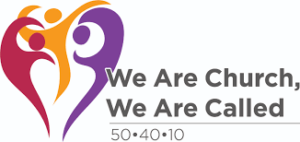2020 marks the 50th anniversary of the ordination of women in the ELCA, the 40th anniversary of women of color, and the 10th anniversary of LGBTQ+ siblings.
It’s an incredibly important marker for the ELCA, though it is only the beginning for the Church, as women are still denied ordination across the denominations and hold less than 15% of the leadership positions in the worldwide church! Therefore, in 2020, we in the Oregon Synod will highlight one woman from Christian history every week. Some you may know, others you may not, but all worthy of our respect and gratitude.
#13 Florence Nightingale
During times of struggle, we need the bright leadership of those following their callings to care for the most vulnerable. Florence Nightingale was one of these leaders. She was seventeen when she felt that God spoke to her, calling her to future “service.” When she discerned her vocation as a nurse her affluent parents quickly forbade seeing it as unfitting for her social class. Nevertheless, she persisted and at 24 she enrolled as a nursing student at a Lutheran Hospital in Germany. After graduating, within a year of being hired for her first nursing job, she was promoted to superintendent. During a cholera outbreak, she made it her mission to improve hygiene practices (wash your hands!) which were unsanitary and aiding in the spread of the disease. Her efforts significantly lowered the death rate at the hospital. In 1853, the Crimean War broke out. In 1854, Florence was asked to organize a corps of nurses to tend to the sick and fallen soldiers. She accepted the call and quickly assembled a team of 34 nurses—mostly Catholic and Anglican nuns—sailing out just a few days later. Conditions in Crimea were horrific. Contaminated water, moldy food, poor sanitation, vermin, lack of supplies, rampant infectious disease, and human suffering. Florence got to work. She enlisted the more able-bodied patients to assist in a massive cleaning effort. She spent every waking hour ministering to patients. Because of her nightly rounds, they took to calling her “The Lady With the Lamp.” Some called her, the Angel of Crimea. She established a kitchen, a laundry, a classroom, and a library. Hers was the first all-female run field hospital. She wrote a book detailing her practices that sparked a total restructuring of the War Office’s Administrative Department. When she returned to Britain, she was rewarded for this work by Queen Victoria. She used the money she was gifted to start the Nightingale Training School for Nurses. Thanks to Nightingale, nursing was now viewed as an honorable vocation. Her faith was “mystical,” she said. After all, “the kingdom of heaven is within.” She sought through prayer and silence reminders of the God who loves all. For her, Christ was healer, presence, and supporter of all on the margins. Speaking once with nursing students she said, “It is Christ himself who is the author of our profession.” Florence died in 1910 having tirelessly devoted her life to follow her call to service, thus preventing disease and ensuring safe and compassionate treatment for the poor and the suffering.





